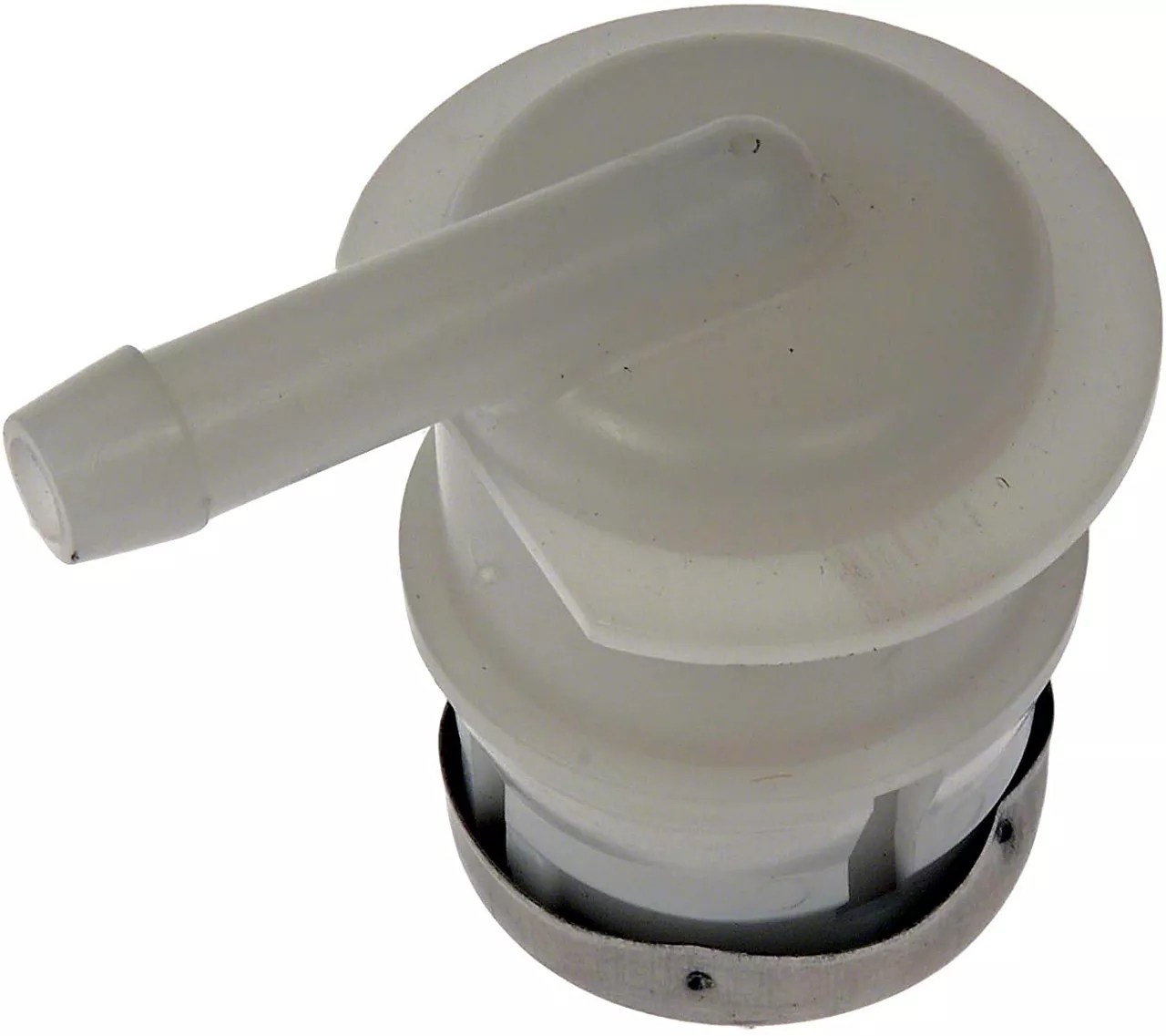Decoding the Gas Tank Vent Cap: Essential for Your Vehicle
Have you ever considered the small, often overlooked cap on your vehicle's fuel tank? It's more than just a cover; it's the gas tank vent cap, a vital component that plays a crucial role in your vehicle's performance and environmental impact. This seemingly simple device ensures the proper functioning of your fuel system and prevents harmful vapor emissions.
The fuel tank ventilation system, of which the vent cap is a key part, allows air to enter the tank as fuel is consumed. This prevents a vacuum from forming, which would hinder fuel flow to the engine. Simultaneously, the fuel tank vent valve within the cap system regulates the release of fuel vapors, preventing them from escaping into the atmosphere. These vapors are routed to a charcoal canister for storage and later burned in the engine, minimizing environmental pollution.
Historically, early automobiles lacked sophisticated vent systems. As environmental regulations tightened, the need to control evaporative emissions became paramount. This led to the development of the modern gas tank vent cap and the entire evaporative emission control system. Today, a malfunctioning vent cap can trigger the "check engine" light and lead to failed emissions tests.
The importance of a properly functioning gas cap cannot be overstated. It prevents fuel spills caused by pressure buildup, maintains proper fuel system pressure for efficient engine operation, and minimizes harmful emissions that contribute to smog and air pollution. A damaged or missing gas cap can negatively impact fuel economy and even cause starting problems.
Understanding the functionality of the gas tank vent cap empowers you to diagnose and address potential issues. A loose, damaged, or missing cap can lead to a range of problems, including a noticeable fuel smell, decreased fuel efficiency, and difficulty starting the engine. Replacing a faulty cap is a simple and inexpensive fix that can save you money and hassle in the long run.
One of the primary benefits of a properly functioning fuel tank vent system is improved fuel efficiency. By regulating pressure within the tank, the system ensures optimal fuel delivery to the engine. A second key benefit is reduced emissions, contributing to cleaner air and a healthier environment. Finally, a properly sealed system prevents fuel spills and leaks, enhancing safety and protecting the environment.
If you suspect a problem with your fuel tank vent cap, start by checking if it's securely tightened. If the cap is damaged, cracked, or missing, replace it immediately. Aftermarket caps are readily available, but ensure they are compatible with your vehicle's make and model. Ignoring a faulty cap can lead to more serious and costly problems down the line.
Advantages and Disadvantages of a Properly Functioning Gas Tank Vent Cap
| Advantages | Disadvantages |
|---|---|
| Improved Fuel Efficiency | Can be easily damaged or lost |
| Reduced Emissions | Requires periodic checking |
| Prevents Fuel Spills | Aftermarket caps may not always fit perfectly |
Five Best Practices:
1. Regularly check the cap for tightness.
2. Inspect the cap for cracks or damage.
3. Replace a faulty cap promptly.
4. Use the correct type of cap for your vehicle.
5. Don't overtighten the cap.
Frequently Asked Questions:
1. What does the gas tank vent cap do? It regulates pressure and prevents emissions.
2. What happens if I lose my gas cap? Replace it immediately to prevent problems.
3. Can a bad gas cap cause the check engine light to come on? Yes.
4. How do I know if my gas cap is bad? Check for cracks, damage, or a loose fit.
5. Can I use any gas cap on my car? No, use the correct one for your make and model.
6. How often should I check my gas cap? Check it visually every time you fill up your tank.
7. How much does a replacement gas cap cost? They are relatively inexpensive, typically under $20.
8. Where can I buy a replacement gas cap? Auto parts stores, online retailers, and dealerships.
Tips and Tricks: Listen for a hissing sound when opening the fuel tank, which could indicate a venting problem. Keep a spare gas cap in your vehicle for emergencies. Consider a locking gas cap for added security against theft and tampering.
In conclusion, the gas tank vent cap, while seemingly insignificant, is a vital component for your vehicle’s proper operation. Its role in maintaining correct fuel system pressure, preventing fuel leaks, and minimizing harmful emissions cannot be overstated. From its historical evolution to its modern-day importance, understanding the functionality and maintenance of this crucial part ensures optimal vehicle performance, reduces your environmental impact, and can even save you money on fuel. Regularly inspecting and replacing a faulty gas cap is a simple yet impactful step towards responsible vehicle ownership and contributes to a cleaner, healthier environment. Don't underestimate the power of this small but mighty component – take care of your gas cap, and it will take care of your car and the planet.
Trending behr gray paint transform your home with these stylish shades
Preppy halloween drawing ideas elevate your spooky season
Dr cheng fountain valley your guide to finding the right care













